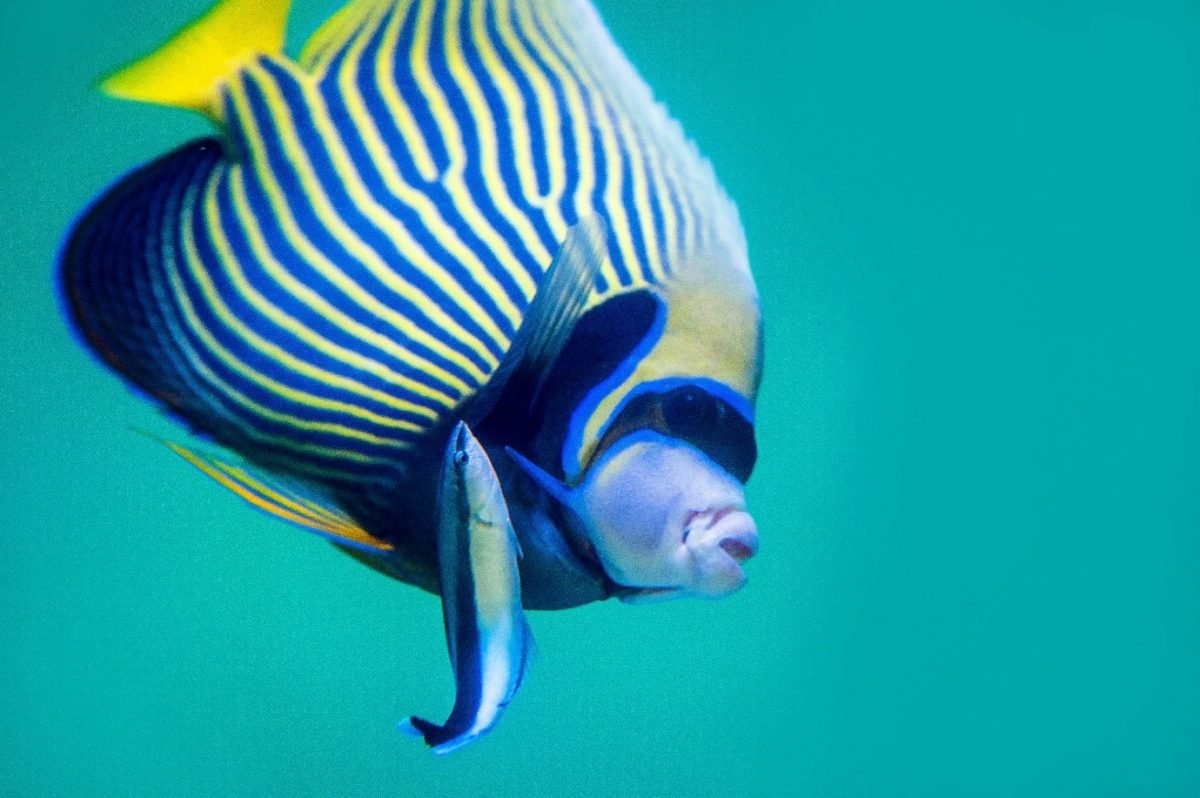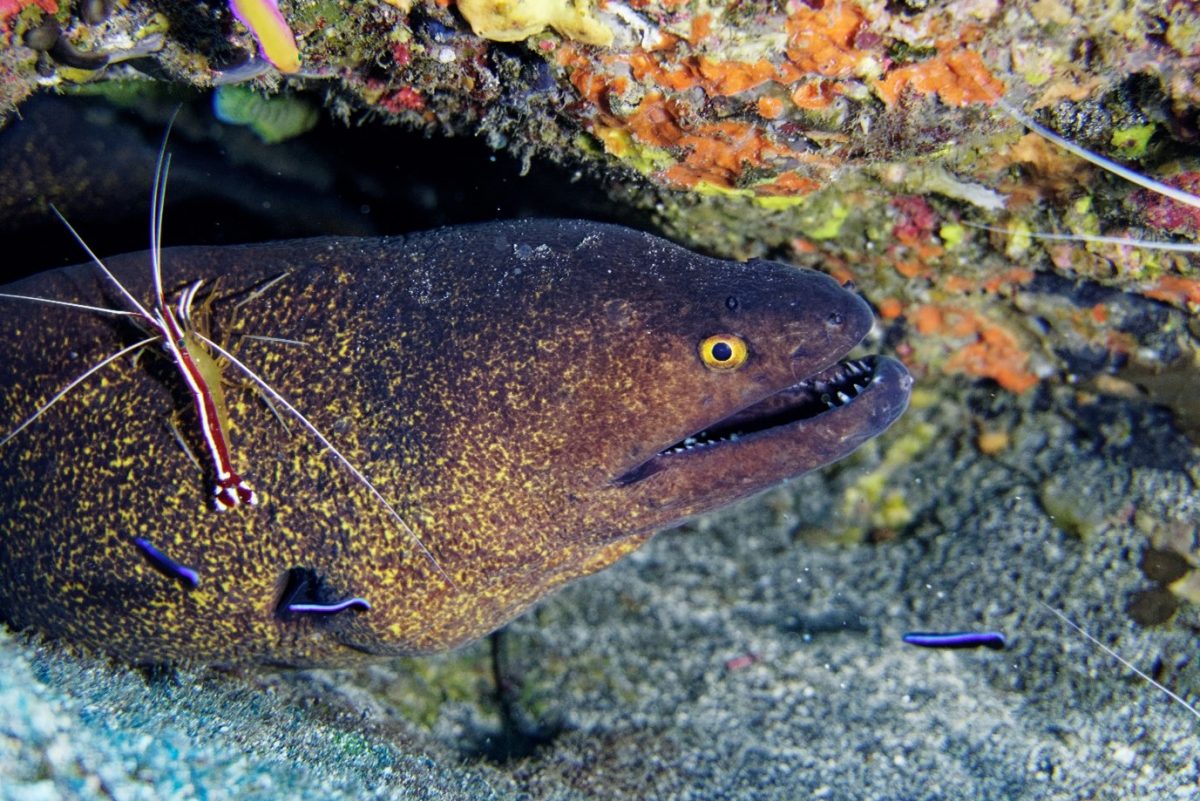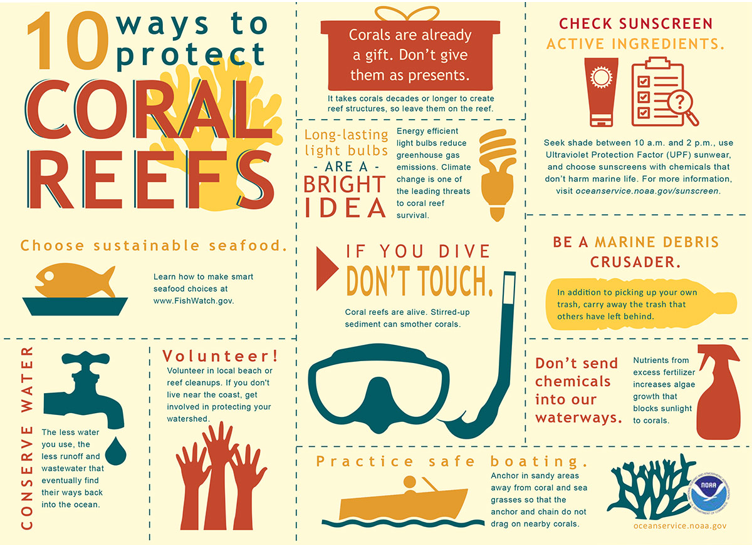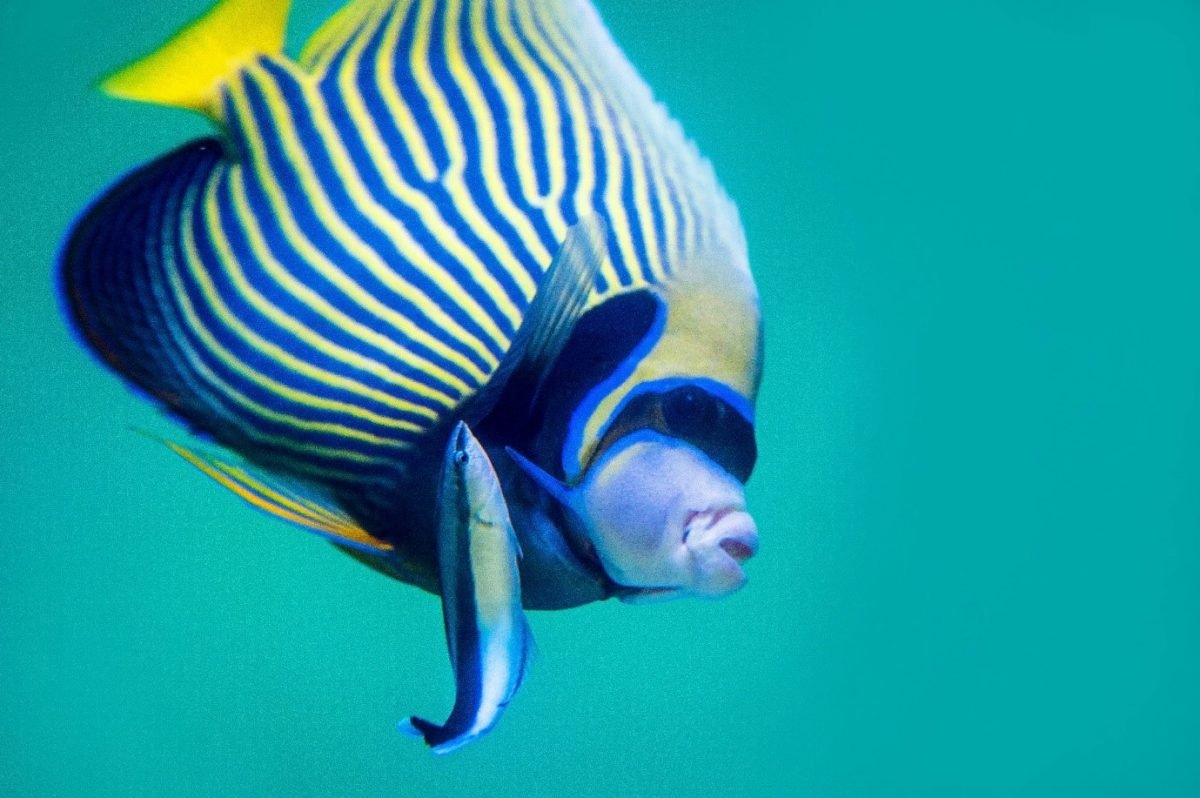Working at the carwash was “kinda hard”, but “always cool” according to Rose Royce in the 80s and the ocean fish wash is certainly no different! If you look closely amidst the hustle and bustle of a coral reef, you may be lucky to witness a fish wash, where cleaner species are working hard to provide cleaning services to their ‘clients’ at certified stations. These cleaning stations, or ‘fish washes’ are incredible spaces on a reef, built on mutual trust, loyalty and respect. I hope by reading this article you discover a new-found appreciation of the wonderous cleaner species that provide critical services for keeping our ocean and marine life healthy and clean.
The wheeler-dealers of the sea
Let me introduce the wheeler-dealer of the ocean: the cleaner wrasse. Cleaner wrasse are remarkable fish, with striking blue and yellow markings and a prominent black stripe. These fish are the busy workers that make up cleaner stations and often work in pairs or harems to provide a thorough cleaning service for their clientele of sharks, sea turtles and a range of fish. Cleaner wrasses pick off parasites, dead scales and mucus from their clients, giving them a much-needed exfoliation. In return, the wrasses get a tasty snack for their services.
Extraordinarily, cleaner wrasses have savvy business brains in conducting their services and have been found to cheat, tactically deceive or prioritize clients to manage their reputation. In the competitive world of cleaning stations, cleaner wrasses prioritize and provide V.I.P services to visiting fish on the reef and send resident reef fish to the back of the line. Cleaner wrasses are smart with their business transactions and are able to keep track of more than 100 individual clients whilst performing up to 2,000 cleaning sessions each day! The wrasses manage their PR by providing fin ‘massages’ to unsatisfied clients, which can also provide a tempting display to future clients.

These fish are not only incredibly intelligent but also vital to a coral reef’s health. A study reported that, when cleaner wrasses are absent on a reef, resident fishes are 37% less abundant, in comparison to reefs where they are present. Additionally, the juveniles of visitor fish (fish likely to move between reefs) were 65% less abundant on reefs without cleaner wrasse, indicating cleaner wrasse may affect the recruitment of fish onto a reef. The intelligence, savviness and importance of these cleaner wrasse, whose brain weighs less than a tenth of a gram, never fails to amaze and awe me.
The Cleaning Team
Other members of the ocean cleaning team include cleaner shrimps, surgeonfish, angelfish and neon gobies. All of these cleaning species have vital roles in keeping our marine environment clean and healthy. Cleaner shrimps often advertise their services by a spectacular rocking dance and have excellent dentistry skills, cleaning teeth and forming trusting relationships with large predatory fish. These fantastic little shrimps form incredible relationships with Moray Eels, one of the most unusual ocean friendships! Neon gobies also advertise their cleaning services by performing a little dance and often clean as a male-female duo. These cleaner species, whilst having separate cleaning stations, can also clean a larger client simultaneously, working as the ocean’s very own cleaning team.

Conserving Cleaning Stations
Under the ocean’s surface, there is a remarkable kaleidoscope of life teeming within the metropolitan marina that is the coral reef. These reefs would not be able to function without the vital services of the underwater cleaning stations which provide vital round-the-clock services from incredible cleaner species. Cleaning stations and species are currently seriously threatened by rising ocean temperatures, ocean acidification and other anthropogenic threats. Whilst being one of the most biodiverse and beautiful ecosystems on the planet, coral reefs are also among the most fragile and are in serious decline. Listed below, are a number of ways you can take action to help protect these animated metropolises of underwater life.

